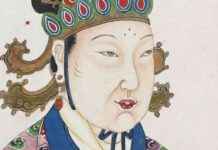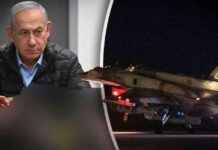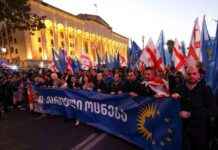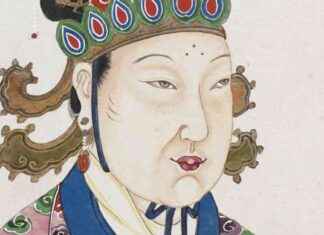Faced with the war in Ukraine, which has opened a “delicate and risky period, it becomes even more necessary to strengthen our cooperation, our solidarity and our harmony”, declared Mr Erdogan during a summit of the Organization of Turkic States (OET) in Samarkand.
This is the Turkish president’s third visit to Central Asia in two months, a sign of his efforts to strengthen ties with the former Soviet Turkic republics of this region and the Caucasus with which Turkey shares cultural, linguistic and religious ties. .
In front of his counterparts in the region, Mr. Erdogan also pleaded for the establishment “as soon as possible” of a Turkish investment fund, which would make it possible to strengthen economic cooperation between these countries.
Founded in 2009 as the “Turkic Council”, the OET brings together four former Soviet republics from the Caucasus (Azerbaijan) and Central Asia (Kazakhstan, Kyrgyzstan and Uzbekistan), as well as two observer countries: Turkmenistan — other former Soviet country in Central Asia — and Hungary.
– Cypriot imbroglio –
With this tool, Ankara hopes to increase its influence in a region dominated for decades by Moscow which, even after the fall of the Soviet Union, retained its stranglehold through military and economic alliances.
But the Russian invasion of Ukraine at the end of February opened up breaches by diverting Moscow’s attention and arousing the concern of the countries of the region, which are looking more than ever elsewhere, towards China but also Europe.
The Kyrgyz leader, Sadyr Japarov, thus insisted on the “need to collaborate more closely on the commercial level”.
The summit was, however, marked by an imbroglio around the accession announced by Ankara of Northern Cyprus, a self-proclaimed state and not recognized by the international community, as an observer member of the OET.
Mr. Erdogan “thanked” his counterparts during his speech for having “accepted” this membership, but no other country has confirmed it. Worse, Uzbekistan cast doubt by ensuring that no text to this effect had been “signed”.
Kazakh President Kassym-Jomart Tokayev stressed the importance of “the territorial integrity of all states”, Kazakh diplomacy claiming that these remarks related to the Turkish request to integrate Northern Cyprus.
This summit and Mr. Erdogan’s frequent visits to Central Asia illustrate in any case Ankara’s hope to give more scope to the OET, after decades of unquestionable domination of the region by Moscow.
– Russian “Obstacle” –
“Since the beginning of this dream of creating a Turkic community, the weight and influence of Russia have been obstacles,” explains Bayram Balci, doctor of political science affiliated with Sciences Po and ex-director. from the French Institute for Central Asian Studies.
But this Russian influence has been eroding in recent years, especially since the Nagorno-Karabakh war between Armenia and Azerbaijan in 2020, and especially Moscow’s invasion of Ukraine this year.
“Turkey is indirectly reaping the fruits of Russia’s failures and mistakes, which allow other countries to gain a foothold,” Balci said.
For Andrei Grozin, Russian specialist in Central Asia at the Institute of the countries of the Commonwealth of Independent States, “any activity in Central Asia is perceived by Moscow (…) as undesirable”.
But Turkey and Russia, which are also cooperating on several issues, could find common ground to try to exert joint influence, because their interests are “not incompatible”, he said.
According to Mr. Balci, the Central Asian states “will be part of these two unions (Turkish and Russian) by taking what interests them and rejecting what does not interest them”.
While Turkey is striving to sell military drones to the former Soviet republics and also to exercise soft power through cultural projects, trade exchanges remain limited at this stage compared to other regional powers.








